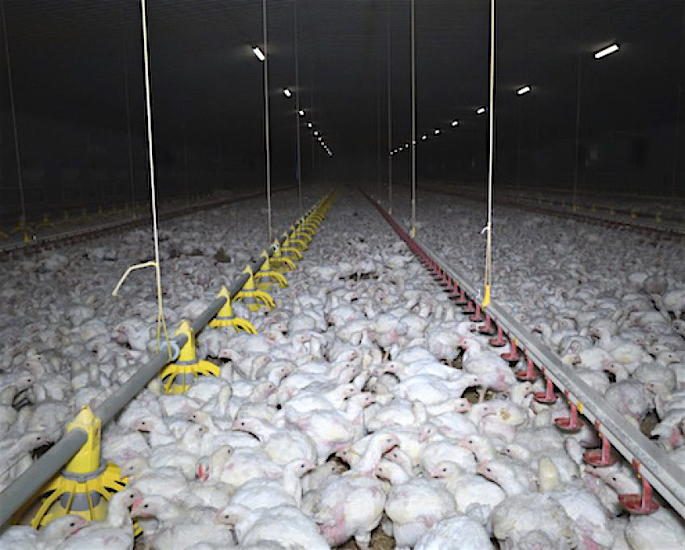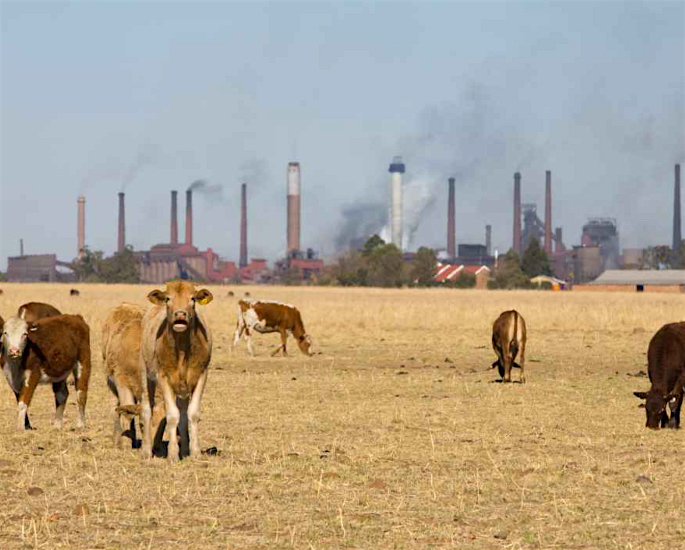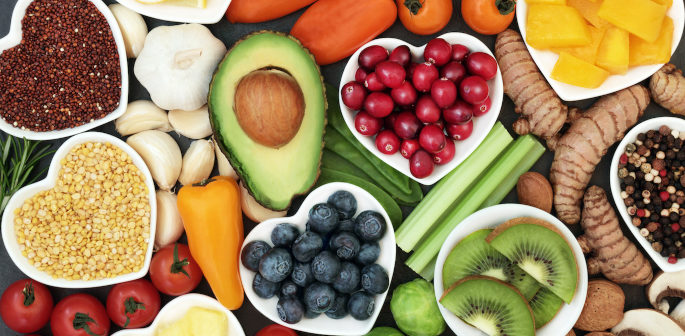“Shaken by the true reality”
Becoming vegetarian is ‘in’. Our attention has been grabbed by its continued presence on social media and our TV screens, as vegetarianism has been dressed as a saviour against global warming.
Changing your diet to become vegetarian appears to be a recent phenomenon, birthed in the 60s, associated with judgmental people who scream ‘meat is murder’.
But did you know Pythagoras is the first face of vegetarianism? The same Pythagoras from the Pythagorean theorem back in school. Yet the term itself, vegetarian, wasn’t coined until 1847.
Vegetarianism has reignited its way back into the hearts and minds of people today, making space for something bigger and creating a conversation for climate and ethical issues.
Being a vegetarian is a lifestyle. It can cause a dramatic change in personal perception of the world. It emphasises how just one person can make a change worth the weight of the planet.
As a long term commitment, people who become vegetarian have a stronger reason than participating in a trend.
Many people have religious reasons, or health complications where becoming vegetarian is vital for their wellbeing. A literal situation of life or death.
Other reasons delve into financial, ethical or environmental concerns.
A vegetarian does not eat any animal or fish but can consume dairy products like cheese or milk. Some vegetarians are happy to use products like leather or wool.
In terms of nutrients, alternatives are sought out, often being found in beans or nuts.
There is no right way to become a vegetarian. Some people prefer a gentle incline into complete vegetarianism, where fish is often the last thing to go. Other people jump straight into the deep end and stop eating meat entirely.
A branch of vegetarianism is veganism. Vegans avoid animal products completely, where dairy, honey and materials such as leather and wool are not in their lifestyle.
Veganism is stricter, requiring more discipline. Many people become vegetarians before they decide to become vegan.
Read on to find out the reasons why people may become a vegetarian.
Ethical

Animals are cute. They are the centre of joy, being widely shown off on Instagram or YouTube, so ethical treatments of animals are posted everywhere.
Netflix documentaries Conspiracy (2015) and The Milk System (2017) reveal the cruel standard of living some animals are forced to endure.
It provides an exposé into factory life, the process and mechanical nature, animals like cows, experience in order to meet quotas of milk bottles on the shelves.
More people are shaken by the true reality of some of these conditions and are shocked to realise how they are contributing to these horrors by doing something as simple as buying cow’s milk or ordering steak.
This reason alone has contributed to a rise of people becoming vegetarian.
Furthermore, animals are often bred to produce optimum meat and sometimes hormones are involved to bulk up animals.
Selective breeding can cause deformities, often resulting in leg problems in animals such as cows, pigs and chickens.
Ultimately, the goal is to get the animals from birth to the slaughterhouse with the maximum amount of weight as quickly as possible.
Without much consideration for the state of the animals, their lives or purpose on this earth.
It is vital to note the ethics surrounding this treatment. The way some animals are treated is one reason why people may become vegetarian.
Not all livestock are kept in these conditions. Some animals live a life of care. They are treated with respect and live a lifestyle apt to be deemed as ethical meat.
Animal cruelty in the cosmetics industry has been a war long fought, with alternatives being looked into.
It can be a reason why some people make a gradual change to becoming vegetarian, as testing products on animals is not something reserved to midnight horror stories and are often the true reality of some companies.
To be wary and vigilant of what companies you buy from does not automatically mean you have to become vegetarian, but can lead to an awareness of being more ethical with your lifestyle.
Environmental

It is harder to deny climate change. With record-breaking summers happening months before the season, and with water claiming larger amounts of land, global warming is no longer an obscure concern.
People are urged to reflect on their own lifestyle, to take action against their carbon footprint and re-evaluate what they are consuming.
One of the methods to do this would be through a vegetarian diet, providing an explanation for why more people are establishing this lifestyle.
The environmental reasons why people become vegetarian are looking to reduce the impacts of:
- Global warming
- Methane and CO2 production
- Water consumption
- Air and water pollution
- Deforestation
Many people who are aware of these huge implications are mindful in making small dietary changes, such as becoming vegetarian 3 times a week, which can help reduce their personal carbon footprint.
The livestock sector produces roughly 9% of CO2 emissions and is contributing a larger amount of greenhouse gasses. Meat such as beef uses up to 13,000 litres to 100,000 litres of water but grains such as wheat utilises 1000-2000 litres.
Being aware of the number of resources each product takes is truly eye-opening and many people are aware small changes are a catalyst to make bigger changes.
The Amazon Forest in South America was burnt to make way for cattle farming. Also known as the ‘Lungs of the Planet’ it is a vital source in reducing the rate of global warming.
The Amazon also holds thousands of species of wild, rare and stunning creatures.
Deforestation affects wildlife and causing these species to become on the brink of extinction.
Companies depending on large areas of land for livestock are contributing massively to these environmental issues.
Financial

Depending on the amount of time, energy and money invested in looking after livestock, the price of the meat is mirrored to that.
Organic meat can be more expensive because of the lifestyle of the animals, such as the amount of pasture each animal has, whether they are caged, or what food they are fed.
This can even play into the duration of the animal’s life, and the method they are slaughtered.
As the price reflects the lifestyle, some people may become vegetarian simply because they cannot afford to buy ethical meat.
This can be popular among students, where finances go to other things, like rent, social life and education. A vegetarian diet is roughly 10% cheaper than someone who frequently eats meat.
This can also be in combination with other reasons, as cheaper meat would imply animals are not treated to a high ethical standard, and therefore, meat may not be bought due to both, ethical and financial reasons.
However, a lot of people may consider a pescatarian diet due to financial restrictions, as fish tends to a little cheaper than red meat or chicken. A pescatarian diet looks at eating fish but no meat or poultry.
It cannot be deemed as a vegetarian diet as a living creature is killed for food purposes.
Fish may be cheaper to buy, and a larger amount of protein in one sitting, but the fishing industry itself is still riddled with ethical and environmental issues.
Health

Health is a fickle thing, often requiring more than just a diet to remain fit. People may choose to become vegetarian for their health.
Eating meat is a quick way to gain a large amount of protein in a limited amount of food. This sounds perfect for those who cannot buy a large amount of food at one given time.
But this has ethical implications which have been previously mentioned.
However, like many things in life, too much of anything can be bad for you.
Eating excess meat has been linked to heart issues, higher rates of cancer, diabetes and a higher likelihood of stroke.
Neglecting food such as fruit, vegetables, nuts and grains hinder any ability to live a long healthy life, and these foods are plentiful in a vegetarians diet.
For this reason, some people opt for a vegetarian lifestyle, as it can lead to a healthier body.
However, protein is still a huge component in our diets but can be attained through other means such as eggs, nuts or soy. Meat alternatives are also popular due to high demand.
Imagine a vegan ice cream sitting in the freezer, and you are lactose intolerant. Sounds like a dream, right?
For people who have restricted diets because of their digestion or allergies, dabbling in vegetarian or vegan food is a way they can indulge. This could lead to a stirred interest, making diets fully vegetarian and fully inclusive for them.
For some people, being vegetarian is easier.
Religious

Food is enticing. It becomes a feature of any trip and is a large part of a country’s identity. Some places specialise in vegetarian food, like South India.
However, food can often be influenced by the constraints of religion and associated practices.
In Hinduism and Buddhism meat and eggs are sometimes avoided. Cows are considered sacred, and beef is not allowed.
Baptised Sikhs are forbidden to consume meat and eggs. Jainism requires a strict vegetarian diet which even excludes root vegetables.
In religions such as Islam and Judaism, pig meat is forbidden and other religions like Christianity used to forbid meat on Fridays.
Although there are a few restrictions through religion, it seems more likely a combination of reasons is used to make that full integration into a vegetarian diet.
100 people may become vegetarian for 100 different reasons. Outlined above is a few that are popular. Often they interconnect, they pull from each other and are widely recognised through social media.
It could be stated more people are becoming vegetarian because of the heightened knowledge and momentum this lifestyle has gained.
But as supermarkets have kept up with demand, supplying vegetarian food is now more widely available than ever, often being the spark that leads to an easy full transition.






























































